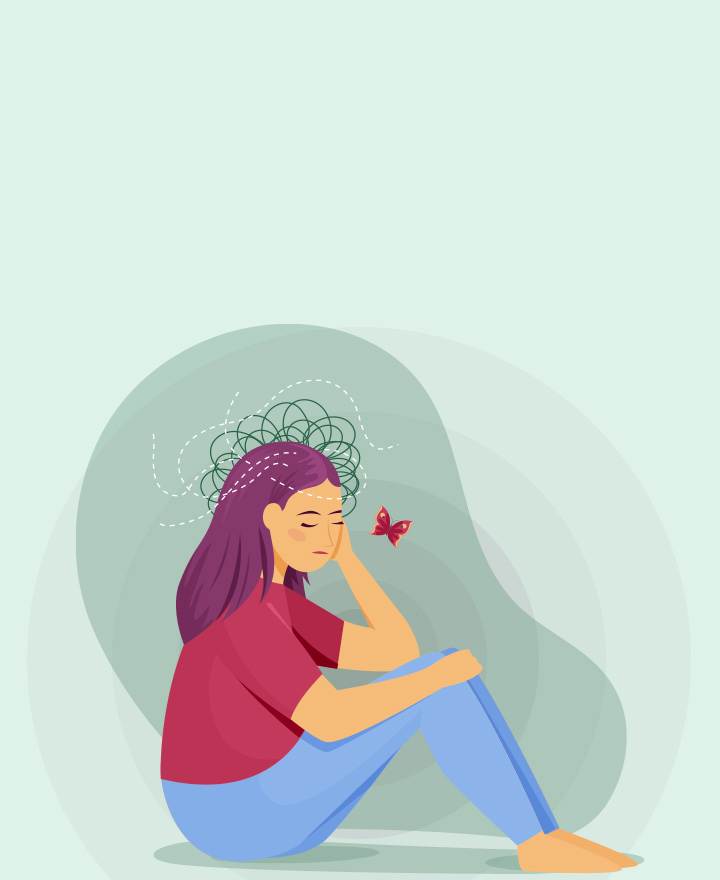

Dissociative Disorders - Diagnosis and Treatment
Dissociative disorder is a complex mental health condition to diagnose and treat. Unlike other mental health condition, dissociative disorders are not well understood. There is no definite treatment protocol for dissociative disorders. However, medication and therapy are the most commonly used treatment modalities. Here, you will learn about the diagnosis and treatment options available for dissociative disorder.
Diagnosis of Dissociative Disorders
The diagnosis of dissociative disorder requires patience on part of both the doctor and the patient. Usually, the doctor begins by talking to the person coping with the ailment. The initial diagnosis protocol may involve the following —
• Physical exam
The doctor will examine the physical health of the patients. They may recommend certain tests to rule out any physical causes such as the impact of any head injury, brain diseases, sleep disorders, and alcohol/drug abuse.
• Discuss
The doctor will talk to you about previous incidents and those associated with your family history. They may also ask about any history of trauma or abuse. If needed, the doctor may also try to speak to family members and friends to get a better understanding.
• Mental Health Exam
The doctor will examine the mental health of the person with certain aptitude tests and other examinations.
Treatment
The treatment for dissociative disorders may vary depending on the type of disorder. The most common protocols for dissociative disorders treatment include medicine and talk therapy.
1. Medicine
Dissociative disorders have no specific medication. The doctor may prescribe antidepressants, anti-anxiety, or antipsychotic drugs to help with mental health symptoms associated with the disorder.
2. Talk Therapy (Psychotherapy)
This is the primary therapy for patients with dissociative disorders. It involves talking to the patient. This specific type of psychotherapy used for dissociative disorders include:
• Cognitive behavioural therapy (CBT):
CBT is a structured and goal-oriented style of therapy where the therapist helps patient understand their thoughts and emotions; it helps to unlearn negative thoughts and behaviours. It also helps to adopt a healthier thinking pattern.
• Dialectical behavioural therapy (DBT):
DBT is especially helpful for people who experience intense and debilitating emotions. The main goal of DBT is to strike a balance between acceptance and validation. The therapist helps patients regulate their emotions better.
Therapy can be difficult, as it involves remembering and learning to deal with past trauma. But it can significantly help your symptoms in the long term.
3. Other therapies that can help include:
• Hypnosis
Hypnosis or hypnotherapy is a state of deep relaxation and focused concentration. When you’re under hypnosis, it allows you to ignore ordinary distractions and be more open to guided suggestions to make changes to improve your health.
• EMDR therapy
Eye movement desensitization and reprocessing (EMDR) therapy involves moving your eyes a specific way while you process traumatic memories. The goal of this therapy is to help you heal from trauma or other distressing life experiences. Compared to other therapy methods, EMDR is relatively new.
When should you see the Doctor?
If you’re experiencing symptoms of a dissociative disorder, talk to a healthcare provider or mental health professional. Mental health professionals can offer treatment plans that can help you manage your condition.
Preparing for your Appointment
Before your appointment, make a list of the symptoms you experiencing, details of personal and medical information, and question you would like to ask the doctor such as is my condition short-term or long-term, what treatment is recommended, should I see a specialist etc.
Conclusion
Healthcare providers diagnose dissociative disorders by assessing your symptoms and personal history. With professional treatment (usually psychotherapy), many people with a dissociative disorder can address the major symptoms of the condition and improve their daily functioning.
One of the important components of our overall wellness is also being financially secured. Healthcare emergencies can happen any time, but a good health insurance policy can protect you from such uncertain situations. To know more about Wellness and other health related tips, visit the wellness corner.
Source: therecoveryvillage.com, ncbi.nlm.nih.gov, mind.org.uk, my.clevelandclinic.org, mayoclinic.org
Disclaimer: This blog provides general information and discussions about health and related subjects. The information and other content provided in this blog, website or any linked materials are not intended and should not be considered or used as a substitute for medical advice, diagnosis or treatment. Kindly contact your doctor before starting a new medicine or health regime.
Related Articles
What are the types of dissociative disorders
Symptoms and Causes of Dissociative Disorders
Psychosis - Causes, symptoms, and treatments
Schizophrenia - Meaning, Symptoms, Causes & Diagnosis
Illness Anxiety Disorder & Its Classification
Published on January 17, 2024














 Health Insurance
Health Insurance  Travel Insurance
Travel Insurance  Car Insurance
Car Insurance  Cyber Insurance
Cyber Insurance  Critical Illness Insurance
Critical Illness Insurance
 Pet Insurance
Pet Insurance
 Bike/Two Wheeler Insurance
Bike/Two Wheeler Insurance  Home Insurance
Home Insurance  Third Party Vehicle Ins.
Third Party Vehicle Ins.  Tractor Insurance
Tractor Insurance  Goods Carrying Vehicle Ins.
Goods Carrying Vehicle Ins.  Passenger Carrying Vehicle Ins.
Passenger Carrying Vehicle Ins.  Compulsory Personal Accident Insurance
Compulsory Personal Accident Insurance  Travel Insurance
Travel Insurance  Rural
Rural